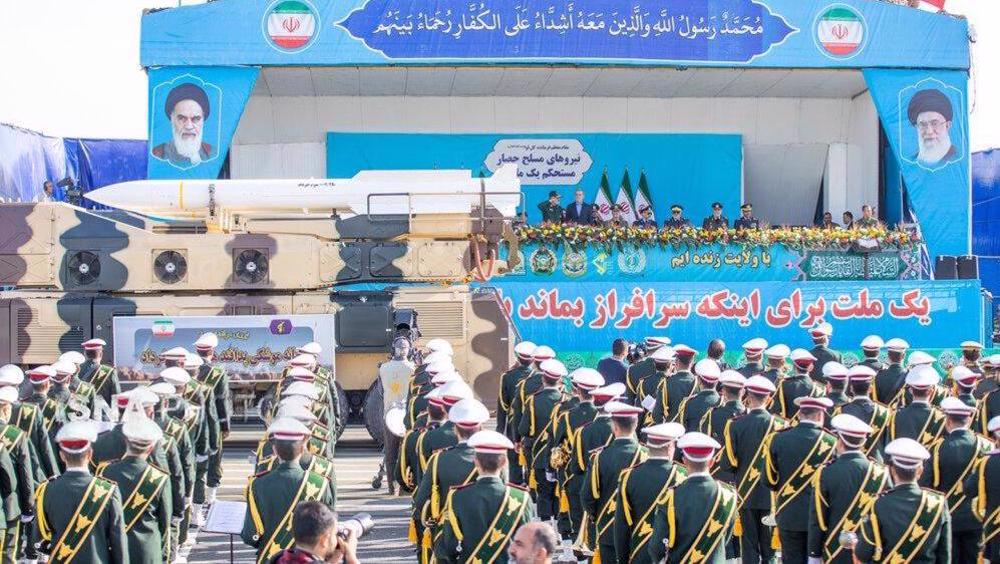FRESH AIR
Sydney University stabbing highlights issues in AIJAC submission on right-wing extremism
July 3, 2024 | Oved Lobel

On July 2, a 14-year-old boy from Sydney’s inner west dressed in a camouflage defence cadet uniform stabbed a 22-year-old man on the University of Sydney campus before turning himself in to the police. Thankfully, the victim survived. Police say the attack was “not religiously motivated”.
As the details surrounding the incident become progressively clearer, the stabbing is beginning to look like a textbook case of what AIJAC described in its recent submission to the Senate Legal and Constitutional Affairs Committee inquiry into right-wing extremist movements in Australia, its previous submission to the Legal and Social Issues Committee’s inquiry into extremism in Victoria as well as in blogposts and articles.
Ideology
Police describe the boy’s motivation as a “salad bar of ideologies.” This is what AIJAC – echoing Australia’s security agencies, including the Australian Federal Police (AFP) and ASIO – underlined in its submissions on the “right-wing extremism” issue: there is no coherent ideology, and the term is therefore not useful from an analytical or policy perspective. Instead, in 2021, ASIO introduced the category Ideologically Motivated Violent Extremism (IMVE) to both depoliticise and more accurately define the problem.
The AFP asserted this nebulous group holds “diverse and multifaceted ideological views” and is not a “cohesive cohort”, while ASIO more recently said this group was “motivated by a hybrid of conspiracies, grievances and anti-authority beliefs. It is neither helpful nor accurate to assign these individuals a place on the political spectrum.”
There is no clean distinction between IMVE and ASIO’s other category, Religiously Motivated Violent Extremism (RMVE), and it is not uncommon for neo-Nazis, white supremacists and others who would be considered on the “far right” to convert to Islam, as AIJAC noted in its submissions.
This may be of special importance in this case given the attacker’s alleged interest in Andrew Tate, arguably a misogynist extremist influencer – currently being charged with human trafficking, rape, and forming a criminal gang to sexually exploit women – who converted to Islam in October 2022. It’s not clear which aspect of Tate appealed to the adolescent attacker, but the Islamic element can’t be ruled out.
Self-radicalisation vs neo-Nazi groups
AIJAC has stressed in its submissions and articles that it is self-radicalised “lone wolves” in toxic online ecosystems, not organised Nationalist and Racist Violent Extremist (NRVE) groups, that present the true IMVE security threat, something corroborated by ASIO, the AFP and other security organisations and experts. NRVE groups function more like “extremist fraternities” and, as extremism expert Dr Kristy Campion testified in 2022, they “can act as a handbrake for violence.” As in nearly every such incident relating to IMVE, the 14-year-old attacker was not associated with any groups or networks, according to police.
IMVE and intellectual disabilities, mental health and autism
The 14-year-old attacker had been attending a special needs school and was on a waitlist to be screened for autism to enable the family to access further support. The Daily Telegraph reported that “Sources familiar with the teen say the family has been receiving support from a variety of government agencies to help them with their son.”
Earlier in June, 19-year-old extremist Jordan Patten entered the office of Newcastle MP Tim Crakanthorp armed with knives and dressed in tactical gear, intending to live-stream the aborted murder. He had also written and distributed a 205-page extremist manifesto riddled with racism and violent threats. Like the 14-year-old – and many other such cases – Patten himself decided not to go through with the attack and has expressed remorse, having been arrested without incident. More importantly, Patten was autistic and had several additional mental health issues, for which his brother said, “Treatment was hit and miss.”
This phenomenon of IMVE links to mental health, intellectual disability or autism, which has also been noted in the UK and elsewhere, is something AIJAC highlighted in its submission, with the first recommendation to the inquiry being to “Investigate whether there is a link between autism and mental health and NRVE to establish which social and mental health interventions, rather than security-oriented ones, might mitigate susceptibility to the associated ideas and activities.”
The failure of deradicalisation programs
The 14-year-old was well known to social and security agencies because, as reported by the Daily Telegraph:
A teenage boy had allegedly planned to carry out a “Christchurch style terror attack” at a Sydney school and had been put in government deradicalisation programs less than a year before the alleged stabbing of a student at the University of Sydney on Tuesday morning.
The Daily Telegraph can reveal the 14-year-old boy had been charged over those terror plans, but they were dismissed in Surry Hills Children’s Court on mental health grounds in February this year.
The attacker was subsequently enrolled in a deradicalisation program under the Department of Community and Justice less than 5 months before the attack.
In May, a 16-year-old enrolled in a deradicalisation program was shot dead after a stabbing attack in Perth. The WA Police Commissioner said, “We are dealing with complex issues with this 16-year-old male — both mental health issues but also online radicalisation issues” and that the deradicalisation program was “for those that are exhibiting behaviours that might be religious or issues motivated.”
AIJAC recommended in its submission that the Government “Conduct a nationwide assessment, based on concrete metrics, of the efficacy and outcomes of all Countering Violent Extremism (CVE) and Deradicalisation initiatives in Australia” given their poor record and underlying philosophical issues with the entire concept of “deradicalisation”. These two attacks only underline the need to rethink the way the Government approaches these programs and the issues they’re meant to address.
RELATED ARTICLES

Enormous hope that Iran is being liberated: Colin Rubenstein on Sky News

He survived Bondi. Now he’s fighting back: Arsen Ostrovsky addresses AIPAC conference





















